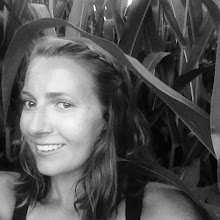On the drive from DC, the snow lined the rows in the cut corn fields. I have always loved the way corn fields look after the corn harvest. The stalks are cut a foot above the soil, and left. And now, grass gone and ground frozen, the left-stalks rise hard and jagged from the fields in strange, wind-tilted rows. In the spring it will be plowed over and churned under. But today, with great streaks of white only highlighting the spears of the cut corn stalks, the fields were so cold and beautiful that I stopped and stood outside my car for a moment. I watched the crows peck for the last remnants of summer beneath the crust of winter white. Winter in the city is so different, so winter.
It's cold and hard and the wind whips between the buildings so fast it feels barbed. You steel yourself against it. The snow has stayed, and the sidewalks are icy. Pedestrians dart across the streets in front of cars, emboldened by their need not to freeze to death. I have to admit, I find the winter difficult in DC. More so than on the island, which is saying something. In some respects, my time on the island now seems surreal--imagined. Perhaps because it isn't an understood thing to do. When I say to people, Well, I spent a year living in relative isolation on an island in the Chesapeake Bay, I don't think that they grasp that I am entirely serious. I think to myself, now, what was I doing this day one year ago? Today, I likely built a fire in the morning. Maybe I made a trip to Gloucester to buy wine and vegetable broth (which is inexplicably impossible to buy in Mathews County). Maybe I watched a film, arrived red-slipped from Netflix in PO Box 188 at the Gwynn's Island PO. If it was above forty degrees, I rode my bicycle to pick up said mail, hands buried deep in the pockets of my red, hooded coat. The locals stared at me from their well-heated cars in disbelief and I nodded to them, face mostly obscured by one of the many scarves I knitted last winter, while watching West Wing. Maybe, just maybe, I wrote something. Most likely I agonized about the fact that I hadn't. I made myself dinner, something ridiculously labor-intensive, and drank Pinot Noir, and winnowed away the dark hours. Last winter, my winter here, was difficult.
I miss summer, as I always do, every year. When I was a child I stole a little plastic bottle of my Great Aunt Margaret's perfume. It was a dark, dark amber color and came in a little round bottle with a cheaply painted gold top. I don't know why I took it. It smelled so like my summers, I guess. Every year I would spend a night or two with Aunt Margaret, in Chapel Neck, at her little figurine-filled house on North River. Her second husband had gone to sea and brought her treasures. Her indoor porch was a museum of his travels--reed-covered wine bottles from Italy, delicate blue china, tiny boxed bamboo houses from Japan, a mobile of tropical seashells, and dozens of porcelain statues of birds. I chased fiddler crabs in the yard and plunged my foot through a rotting plank on her dock, beside which a long sunk wooden boat sat in the shallows, filling slowly with sharp edged salt grass. I took her little bottle of perfume and at home, in California, a state I hated beyond reason until I was old enough to enjoy things like rampant liberalism or farmers markets, I dropped a single amber drop on the last page of the Elizabeth Enright novel Gone-Away Lake. I still have the copy of the book, one of my favorites from my adolescence. It was published in 1957, and is about two children who, while visiting the country home of their cousins, stumble upon a long-forgotten Victorian resort community at the edge of a long-vanished lake, and the two elderly eccentrics who still reside there. For whatever reason, the book always made me think so hard of Virginia that it broke my heart a little bit to read it, I wanted so badly for it to be August, when we would go East. So I put the drop there, that strange cheap old-lady perfume, and sometimes in the middle of winter, when things were particularly hard at school or hard at home or hard in my head I would open the book to the last page and breathe in. And instantly, every time, it would be as if it was summer, and I was here, sunburnt and freckled, knee-deep in the Chesapeake.
I suppose what I'm saying is that, shuddering against a particularly fierce onslaught of winter wind on my way to the Dupont metro, I can't help but wish for my copy of that book, or the smell of my great aunt's perfume, or the feeling of humid hot so humid and hot you can taste it.

No comments:
Post a Comment